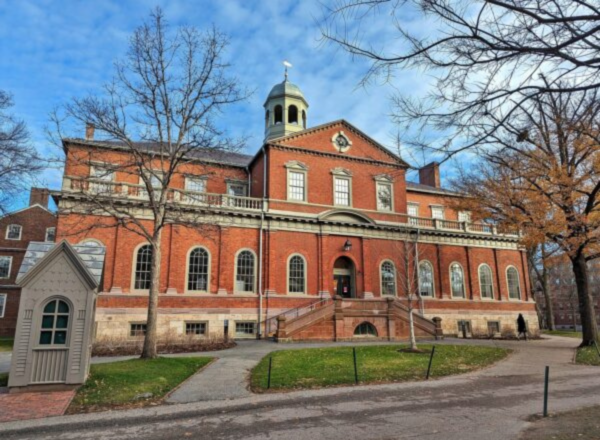Kerry Kokkinogenis, Local Food Program Manager, Sustainable Business Network of Massachusetts
In an interview with Invest: Kerry Kokkinogenis, local food program manager at SBN MA, shared what resources the nonprofit offers to help local food businesses achieve financial sustainability and adopt sustainable practices, discussed challenges faced by micro and small businesses in Boston, and why community work is integral to their work.
What are some of the challenges associated with microbusinesses in Boston?
I recently had a conversation with a local, well-known mom-and-pop food business. Their first location was in Allston; they had another one in Jamaica Plain and a couple of others in high-end, expensive communities. In the last year, they closed both their Allston and JP locations. She talked about the shifting population in Allston since COVID first shut down the universities. People left and others eventually came in. It became a different population and the business was not reaching people the way they needed to. Their 10-year lease was up, and they had to choose whether to invest in another ten years or let it go. In JP, people did not leave as much as they went inward, started cooking more, and making their own coffee. They started going out less and have not come back in the same way. Again, the 10-year lease came up, and they decided to close.
I have heard similar issues from other businesses, including those who closed after running into personnel challenges, high rent, and the constant struggle to train new people. Farms face similar issues with rising costs and dropping prices, and the margin has turned from minuscule to negative. If we want local businesses in our neighborhoods, we need to support them.
What specific resources do you provide to micro-businesses, and how can they adopt sustainable practices to compete with larger, more established businesses?
The majority of our resources aim to support local food businesses reaching the point of financial stability. The Boston Local Food Trade Show helps make valuable connections, while we also offer wholesale matchmaking, one-on-one consultations with industry experts, and guidance on financials, sales, marketing, legal issues, growth, distribution, and food safety. We conduct a public engagement campaign, Eat Local Always, every season to promote eating local year-round. This campaign partners with a variety of local food businesses and nonprofits, raising awareness and driving sales. Our Boston Local Food Festival also provides significant support by promoting businesses in the lead-up to the event, offering a platform for day-of sales, and engaging thousands of potential new customers.
What prompted you to shift your own business from a brick-and-mortar store to a farm-to-home model?
The brick-and-mortar store was bleeding money faster than we could bring it in. In addition, the landlord was offered twice as much rent by a bar. Our losing money and the landlord’s pressure led us to close the store. In closing the store, we asked ourselves, “Where are we even going to get our food?” And that led to a conversation about going out to the farms once a month or every other week to pick up food. We thought we could bring back food for other people, and that developed into the farm-to-home food delivery business.
A couple of months later, the world shut down, and we did our best to navigate the changing food landscape. We went from about 10 orders every other week, to 34 orders one week. We split them into two separate routes, each of them running every other week. At the height of it, we were serving households in Arlington, Somerville, Medford, Cambridge, Watertown, Belmont, East Boston, Back Bay, Allston, Brighton, Newton, and Brookline. That wave crashed and demand receded to pre-COVID levels. We were very lucky not to have taken on debt to increase our capacity with the wave of demand. Many businesses pivoted, bought vehicles, and made investments, but now they do not have the customers to support the debt.
How have the ongoing changes in the market impacted your operations?
A lot of what we do at SBN is around getting the word out about local businesses to expand their potential customer base. If everybody is buying a little less, but you still reach enough customers you can still hit that sweet spot. Another component of SBN’s work is the Cambridge Somerville Black Business Network, which provides equity funds to Black-owned businesses in the area. CSBBN also has a once-a-week market in Harvard Square where vendors can participate to reach more customers. We provide support through events and communications to help businesses expand their audience.
What are your top priorities for achieving growth and driving economic impact in your community in the next few years?
The more businesses that are locally owned, the more money circulates back through the community. Large businesses suck money out of the community. Supporting local businesses makes communities more vibrant, healthy, walkable, and enjoyable. Knowing your customers as people and their personal stories creates a significant difference in the community.
What is your outlook for the Greater Boston area for the next two to three years?
If rents come down, even if they crash, it would be better long term. If people cannot afford to live here, it does not matter what else we do. Whenever that burst finally happens, there will be a lot of potential. Between here and there, we will see how much more harm gets done.













